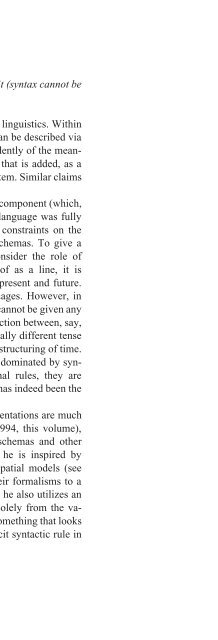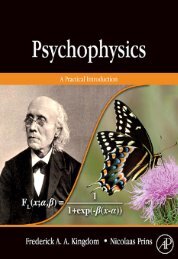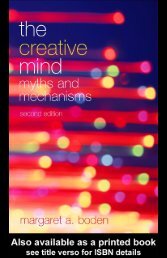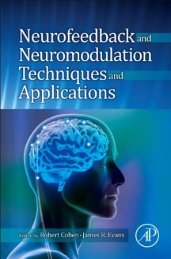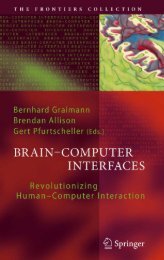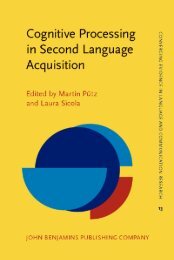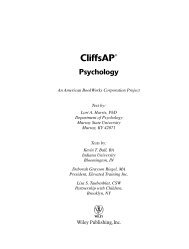Cognitive Semantics : Meaning and Cognition
Cognitive Semantics : Meaning and Cognition
Cognitive Semantics : Meaning and Cognition
You also want an ePaper? Increase the reach of your titles
YUMPU automatically turns print PDFs into web optimized ePapers that Google loves.
58 PETER HARDER<br />
function served by the utterance as a whole. The function of sub-utterance<br />
items must similarly be described by a top-down procedure of the kind<br />
followed above: the function of a constituent element is its contribution to the<br />
job done by the whole utterance.<br />
This approach provides a perspective on dependence that is different<br />
from the one described by Langacker. The basic motivation for it is that one<br />
linguistic element needs another because it cannot do the whole job on its<br />
own; when you code a sub-utterance item, there is always something missing<br />
before you have a fully functional utterance. In this formulation, it is true of all<br />
utterance fragments; but the central asymmetry of the elements in the layered<br />
structure suggests a differentiation between two types of “incompleteness”.<br />
As we saw, the coding differentiation embodied in the layered model distinguishes<br />
between “oper<strong>and</strong>s” <strong>and</strong> “operators”; <strong>and</strong> the defining mark of operators<br />
is that they “use” the oper<strong>and</strong>s in order to create a new <strong>and</strong> more complex<br />
item. At the top (or “output”) end we found the functional types of meaning<br />
(that relate content to the situation); at the bottom (or “input”) end we find<br />
conceptual content, which is “used” in various ways by higher-level operators.<br />
On the basis of this dichotomy, we can set up two complementary types of<br />
incompleteness, giving rise to two types of dependence relations.<br />
The incompleteness of operators consists in the lack of a content to<br />
operate upon. Starting from the top, we began by differentiating between the<br />
illocution (for example, declarative or interrogative) <strong>and</strong> the propositional<br />
content. The illocution operator specifies function, for example, that the<br />
utterance is a question, but in isolation it would lack a content. With a slight<br />
overgeneralization, I shall call the dependence of an operator upon its oper<strong>and</strong><br />
conceptual dependence. The motivation for this name is that the dependence<br />
points downward in the structure, towards the conceptual end, <strong>and</strong> that what is<br />
missing therefore includes the conceptual content. The overgeneralization is<br />
due to the fact that there may be something else apart from conceptual content<br />
missing.<br />
The oper<strong>and</strong> is incomplete in the opposite way. What is missing is a<br />
specification of what to do with it — in the example we have a proposition, but<br />
we do not know whether it is to be used to make a statement or ask a question.<br />
Therefore the dependence of oper<strong>and</strong> upon operator will be called functional<br />
dependence. Seen from the purely conceptual point of view, there is nothing<br />
incomplete about a proposition — we are perfectly capable of entertaining a<br />
proposition mentally, as part of an inventory of “issues”, without incorporat-


